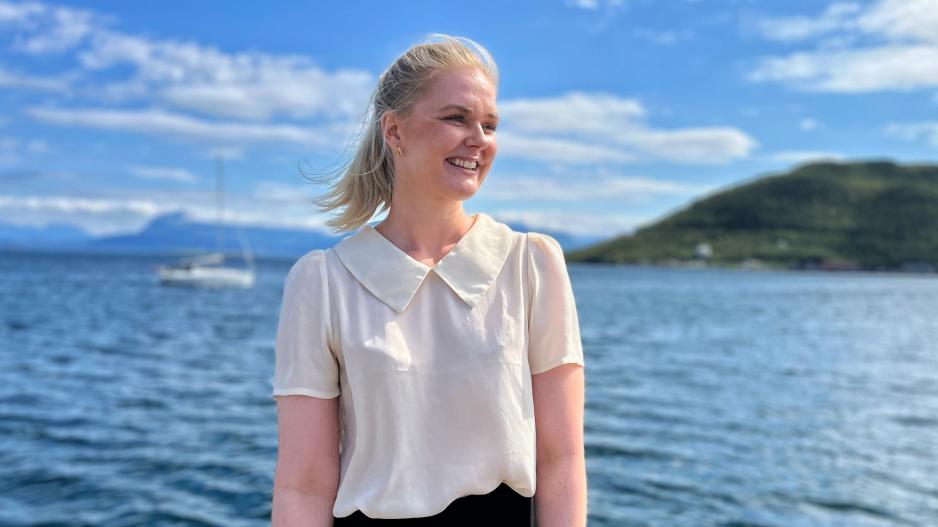‘The Barents region has a PR problem’
Bodø (High North News): The number of young people in the Arctic has plummeted in recent years. Martin Gamst Johnsen, Chair of the Barents Regional Youth Council, wants to address this.
Is there a future for young people in the North?
“Yes, but it is up to us, here and now, to choose what that future looks like.”
The statement belongs to Martin Gamst Johnsen, Chair of the Barents Regional Youth Council. Johnsen was born, raised, and is currently living in Tromsø in Northern Norway – “the Paris of the North.”
In recent years, the flow of migration has moved one way, namely southward. Johnsen wants more young people to stay and look northward.
“One must look at the needs that will arise. The world is changing more than ever, and we have bigger problems than before. If young people are to stay and look northwards, there must be good job opportunities.”
Johnsen highlights war, the cost of living, and climate change as examples of current experiences for young people in the Barents region.
What is the Barents Regional Youth Council?
The Barents Regional Youth Council (BRYC) was founded in 2004 and is the mouthpiece for youth in the Barents region. The youth council works across country borders in Norway, Sweden, and Finland. Russia was also a member of the council, but the cooperation ended after the country’s full-scale invasion of Ukraine.
The aim of the Barents Regional Youth Council is to strengthen cooperation between young people across country borders and facilitate young people engaging in their local communities.
The council is currently chaired by Martin Gamst Johnsen (25) from Tromsø.
Moving because they have to
Johnsen believes that long-term thinking is needed to increase young people’s desire to stay and move to the Barents region.
“I believe the most important aspect is educational opportunities. And we must think long-term here, particularly when it comes to what jobs and educational opportunities there should be in the region.”
Johnsen believes it should be easier for young adults to undertake online and part-time educational programs and avoid moving to the cities unless they want to.
“We must consider how it can be made available for the residents of the entire region. This applies to northern Sweden, Finland, and Norway.”
“Not all young adults long to move to the city. Many do because they have to,” says Johnsen.
Johnsen believes the challenges in the Barents region are the same across country borders.
“Young people want educational opportunities, the possibility of starting families and buying homes. These three things are fundamental whether you are Norwegian, Finnish, or Swedish. But the paths to political solutions are countless.”
We will not force them to stay, but make them want to stay.
Johnsen believes the Barents region’s biggest challenge is its reputation.
“There is a small PR problem. We have been inadequate in showcasing how good it is to live in the North. We need to showcase the region and its opportunities and make people believe in their own homeplace. It is a serious social issue, which we must turn around.”
The Nordland County Government Chair, Svein Øien Eggesvik (Center), also believes northerners need better confidence.
“We need to speak highly of what is good and the benefits that can be found here, and not stand hat in hand and say we cannot do this. We must believe in ourselves,” says Eggesvik.
“We need them”
Svein Øien Eggesvik believes, like Johnsen, that flexible educational programs can be part of the solution.
“Quite many fall behind regarding education and work. We need them in Nordland.”
Eggesvik says that the county works to facilitate high schools so that more people can receive an education without moving away from home.
The Steigen model is an example of a successful scheme in which the students are placed in businesses from the outset.
“We have observed that Steigen gets the labor it needs and that young people stay. Steigen is a growing municipality, even though it is rural.
Must people live in the North?
Maja Wolland Blomberg, Ph.D. Research Fellow at the High North Center says economic development and security are central arguments in the Norwegian policy regarding population development in Northern Norway.
“Northern Norway has been an economic engine for the country since the 800s due to the stockfish export. We have enormous natural resources and great potential for value creation.”

“We share a border with Russia, and maintaining a stable population has been regarded as important to secure Norwegian interests in the Barents area. If drastic measures are not taken, a total collapse in the population has been predicted by 2100.”
Blomberg highlights Sør-Varanger, which is the area closest to Russia.
“If there are no people in the area, it is very easy to invade.”
“It has also been pointed out that small communities have led to poorly developed infrastructure, which again makes it difficult to transport goods and people in times of crisis. This applies to the inhabitants, but also an increasing number of tourists in Northern Norway.”
Measures Martin Gamst Johnsen believes can turn around the migration:
- More online and part-time educational programs
- Facilitate a good and safe upbringing
- A good healthcare service
- Good range of activities and cultural events
- The opportunity to go out to nightclubs and cafès
- Good infrastructure
- Attractive workplaces
High North News is an independent newspaper published by the High North Center at Nord University in Bodø, Norway.